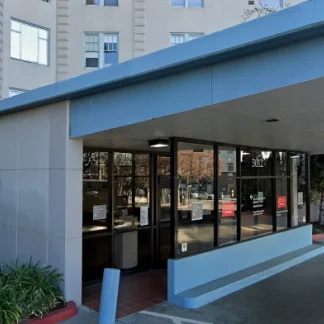Walden House
Walden House is a private rehab located in San Francisco, California. Walden Hou...
Merritt Peralta Institute (MPI) Treatment Services, part of Sutter Health’s Alta Bates Summit Medical Center in Oakland, California, offers medical detox, residential alcohol and drug rehab, partial hospitalization programs (PHPs), and intensive outpatient programs (IOPs) for adults, seniors, adolescents, and children. Services include dual-diagnosis care and an MPI alumni group.
Medical detox allows participants to be monitored 24/7 by medical professionals who can treat the physical symptoms of detox. At MPI, professionals also work with those in detox to create a recovery plan and manage the mental and emotional symptoms of detox so participants are ready for treatment.
Residential rehab at MPI includes individual, group, and family therapy; medication management; education on the impact of addiction; life-skills training; and relapse prevention. They also offer physical fitness, stress management, and support group meetings.
The PHP, also known as a day program, is a full-time program that meets five days per week. The IOP meets three hours per day for four to six days per week. Both programs include the same services as residential treatment, and participants live at home when they are not in treatment sessions.
When treatment ends, MPI offers aftercare support in the MPI alumni program. The alumni program allows participants to stay in touch, offer mutual support, and organize sober events to keep recovery on track.
Merritt Peralta Institute (MPI) Treatment Services accepts a wide variety of insurance plans, including Anthem Blue Cross Blue Shield, Cigna, Aetna, HealthNet, Multiplan, Pacific Health Alliance, and TRICARE. Insurance plans vary, so be sure to verify coverage information and out-of-network benefits with your insurance company directly.
Contact us for more information: (510) 652-7000

Connect with MPI Chemical Dependency Treatment Services by calling their admissions team directly.
(510) 652-7000 Website Get DirectionsResearch clearly demonstrates that recovery is far more successful and sustainable when loved ones like family members participate in rehab and substance abuse treatment. Genetic factors may be at play when it comes to drug and alcohol addiction, as well as mental health issues. Family dynamics often play a critical role in addiction triggers, and if properly educated, family members can be a strong source of support when it comes to rehabilitation.
Group therapy is any therapeutic work that happens in a group (not one-on-one). There are a number of different group therapy modalities, including support groups, experiential therapy, psycho-education, and more. Group therapy involves treatment as well as processing interaction between group members.
In individual therapy, a patient meets one-on-one with a trained psychologist or counselor. Therapy is a pivotal part of effective substance abuse treatment, as it often covers root causes of addiction, including challenges faced by the patient in their social, family, and work/school life.
Nutrition therapy, aka medical nutrition therapy (MNT), is a way of treating physical, emotional, and medical conditions through diet. Specific dietary plans are designed by professional nutritionists or registered dietitians, and patients follow them in order to positively affect their physical and mental health.
Group therapy is any therapeutic work that happens in a group (not one-on-one). There are a number of different group therapy modalities, including support groups, experiential therapy, psycho-education, and more. Group therapy involves treatment as well as processing interaction between group members.
In individual therapy, a patient meets one-on-one with a trained psychologist or counselor. Therapy is a pivotal part of effective substance abuse treatment, as it often covers root causes of addiction, including challenges faced by the patient in their social, family, and work/school life.
Nutrition therapy, aka medical nutrition therapy (MNT), is a way of treating physical, emotional, and medical conditions through diet. Specific dietary plans are designed by professional nutritionists or registered dietitians, and patients follow them in order to positively affect their physical and mental health.
In individual therapy, a patient meets one-on-one with a trained psychologist or counselor. Therapy is a pivotal part of effective substance abuse treatment, as it often covers root causes of addiction, including challenges faced by the patient in their social, family, and work/school life.
Nutrition therapy, aka medical nutrition therapy (MNT), is a way of treating physical, emotional, and medical conditions through diet. Specific dietary plans are designed by professional nutritionists or registered dietitians, and patients follow them in order to positively affect their physical and mental health.
Nutrition therapy, aka medical nutrition therapy (MNT), is a way of treating physical, emotional, and medical conditions through diet. Specific dietary plans are designed by professional nutritionists or registered dietitians, and patients follow them in order to positively affect their physical and mental health.
Walden House is a private rehab located in San Francisco, California. Walden Hou...
Orchid Women’s Recovery Center, a Bi Bett Program, offers residential alcohol an...
Ann Martin Center is a private rehab located in Emeryville, California. Ann Mart...
Alameda Family Services is a drug and alcohol rehab and resource center in Alame...